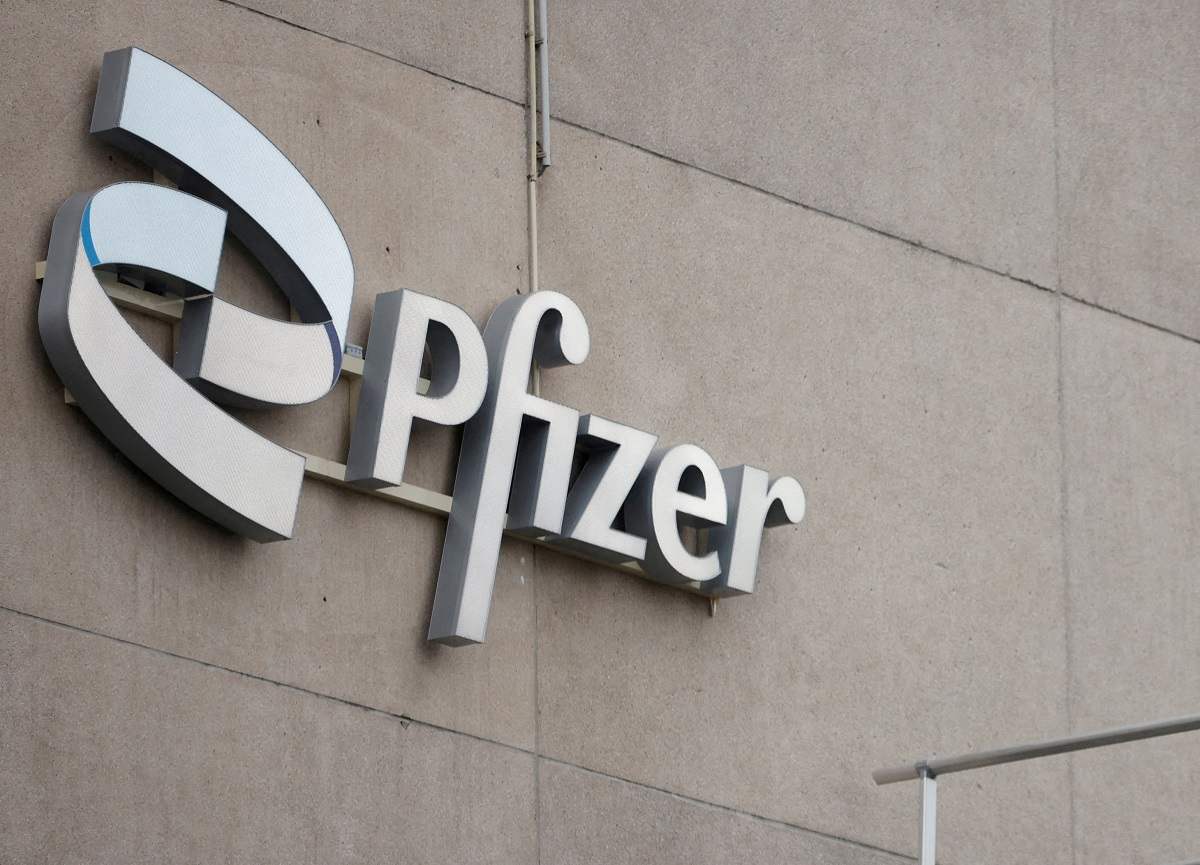
A company logo is seen at a Pfizer office in Puurs, Belgium, December 2, 2022.
15:21 JST, August 22, 2023
The U.S. Food and Drug Administration on Monday approved Pfizer’s PFE.N respiratory syncytial virus (RSV) vaccine for use in women during the middle of the third trimester of pregnancy to protect their babies.
The approval allows the vaccine to be given to women 32 to 36 weeks into a pregnancy to prevent lower respiratory tract infection and severe disease in infants until they are six months old, the company said.
An FDA panel of outside experts backed the safety and effectiveness of Pfizer’s RSV vaccine for women in their second and third trimesters earlier in May.
A Pfizer spokesperson could not comment on the FDA’s reasoning for the more limited window for administering the vaccine, but said the company was confident the shot would have a positive impact on public health and RSV rates.
RSV is a common respiratory virus that usually causes mild, cold-like symptoms but can also lead to serious illness and hospitalization.
The vaccine, sold under the brand name Abrysvo, is already approved for use in adults age 60 and older to block infection from the disease that kills an estimated 160,000 people globally each year.
Infants are at greatest risk for severe illness from RSV. An estimated 58,000 to 80,000 children below the age of five years are hospitalized every year due to RSV infection in the U.S., according to government data.
The U.S. Centers for Disease Control and Prevention still needs to sign off on use of the vaccine, making it the first ever maternal shot against RSV widely available in the United States. That is expected to come shortly after Monday’s approval announcement.
The FDA’s decision was based on data from a late-stage trial with more than 7,000 participants showing the vaccine to be 82% effective in preventing severe infections in infants when given to expecting mothers in the second half of their pregnancy.
Pfizer said the most common side effects in pregnant women were fatigue, headache, pain at the injection site, muscle pain, nausea, joint pain, and diarrhea.
Some experts raised concerns during an advisory committee meeting over the higher number of pre-term births among those who received the vaccine in the clinical trial compared with pregnant women in the placebo group.
Sanofi SASY.PA and partner AstraZeneca AZN.L in July received U.S. approval of their antibody therapy, nirsevimab, to prevent lower respiratory tract disease in infants and toddlers.
In May, the FDA also gave the green light to GSK’s GSK.L RSV vaccines for older adults, helping it and Pfizer seal their presence in a multibillion-dollar market.
GSK is not seeking approval for its shot in expectant mothers.
Top Articles in Business
-

Prudential Life Insurance Plans to Fully Compensate for Damages Caused by Fraudulent Actions Without Waiting for Third-Party Committee Review
-

Narita Airport, Startup in Japan Demonstrate Machine to Compress Clothes for Tourists to Prevent People from Abandoning Suitcases
-

Japan, U.S. Name 3 Inaugural Investment Projects; Reached Agreement After Considerable Difficulty
-

Toyota Motor Group Firm to Sell Clean Energy Greenhouses for Strawberries
-

SoftBank Launches AI Service for Call Centers That Converts Harsh Customer Voices into Softer Voices
JN ACCESS RANKING
-

Japan PM Takaichi’s Cabinet Resigns en Masse
-

Japan Institute to Use Domestic Commercial Optical Lattice Clock to Set Japan Standard Time
-

Israeli Ambassador to Japan Speaks about Japan’s Role in the Reconstruction of Gaza
-

Man Infected with Measles Reportedly Dined at Restaurant in Tokyo Station
-

Videos Plagiarized, Reposted with False Subtitles Claiming ‘Ryukyu Belongs to China’; Anti-China False Information Also Posted in Japan





















